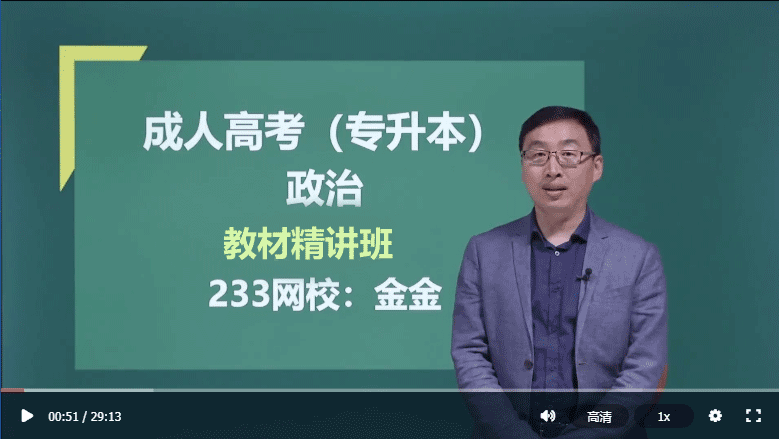φàêδΚΚιΪ‰ηÄÉη΄±η·≠εê¨δΙâη·çηßΘφûêοΦàδΗÄοΦâ
ψÄÄψÄÄrange scope reach compass
ψÄÄψÄÄιÉΫεêΪβÄ€φüêδΚ΄φâÄηÉΫε¹öγö³φà•φâÄε¨Öφ΄§γö³η¨É妥βÄùγö³φ³èφÄùψIJ
ψÄÄψÄÄrangeφ¨΅βÄ€ηΩêγî®εΩÉψĹγ€ΦψĹφ€Κεô®ψĹεä¦ι΅èγ≠âφâÄηÉΫφΠ²φ΄§γö³φï¥δΗΣη¨É妥βÄùοΦ¨ εΠ²οΦö
ψÄÄψÄÄthe range of his knowledge
ψÄÄψÄÄδΜ•γö³γüΞη·ÜιùΔψIJ
ψÄÄψÄÄscopeφ¨΅βÄ€φ¥Μεä®ψĹεΫ±ε™çγ≠âγö³η¨É妥βÄùοΦ¨ γâΙφ¨΅βÄ€δΚÜηßΘψĹηß¹ηßΘψĹιIJγî®φÄßδΜΞεΛ•γö³η¨É妥βÄùοΦ¨ εΠ²οΦö
ψÄÄψÄÄIt is within my scope.
ψÄÄψÄÄι²Θφ‰·ε€®φàëγö³η¨É妥δΙ΄εÜÖψIJ
ψÄÄψÄÄreachφ¨΅βÄ€φâ΄ψĹηΩêεä®ψĹφôΚεä¦ψĹεΫ±ε™çγ≠âηÉΫεèäγö³η¨É妥βÄùοΦ¨ εΠ²οΦö
ψÄÄψÄÄIt's beyond the reach of human aid.
ψÄÄψÄÄι²Θφ‰·δΚΚεä¦φâÄδΗçεèäγö³ψIJ
ψÄÄψÄÄcompassγùÄι΅çβÄ€φüêγâ©φâÄηÉΫφ¥Μεä®γö³η¨É妥βÄùοΦ¨ εΠ²οΦö
ψÄÄψÄÄspeak within compass
ψÄÄψÄÄε€®ιôêε°öη¨É妥εÜÖη°≤η·ùψIJ
ψÄÄψÄÄask inquire question
ψÄÄψÄÄιÉΫεêΪφ€âβÄ€ι½°βÄùψĹβÄ€η·Δι½°βÄùγö³φ³èφÄùψIJ
ψÄÄψÄÄask φ‰·εΗΗγî®η·çοΦ¨ φ¨΅βÄ€δΗΚδΚÜδΚÜηßΘφüêδΚΚφà•φüêδΚ΄ηĨφèêε΅Κι½°ιΔ‰οΦ¨ η·ΖεàΪδΚΚηßΘγ≠îφà•εêëεàΪδΚΚφâ™εê§φΕàφ¹·βÄùοΦ¨ εΠ²οΦö
ψÄÄψÄÄExcuse me. May I ask you a questionοΦü
ψÄÄψÄÄη·ΖεéüηΑÖοΦ¨ φàëεè·δΜΞι½°δΗΣι½°ιΔ‰εê½οΦü inquire φ‰·ηΨÉφ≠ΘεΦèγö³δΙΠιùΔγî®η·çοΦ¨ εêΪφ€âβÄ€φΗ¥φ€¦γüΞι¹™φüêδΚΚφà•φüêδΚ΄γΓ°ε°ûφÉÖεÜΒβÄùγö³φ³èφÄùοΦ¨ εΠ²οΦö
ψÄÄψÄÄHe inquired your telephone number.
ψÄÄψÄÄδΜ•φâ™εê§δΫ†γö³γîΒη·ùεèΖγ†¹ψIJ
ψÄÄψÄÄquestion φ¨΅βÄ€ε·ΙφüêδΚ΄δΗçφ•≠φèêε΅Κι½°ιΔ‰οΦ¨ δΜΞδΨΩδΚÜηßΘη·ΠγΜÜφÉÖεÜΒβÄùοΦ¨ εΠ²οΦö
ψÄÄψÄÄThe suspect was questioned by the police.
ψÄÄψÄÄεΪ¨γ•ëγä·εè½εàΑη≠Πε·üε°Γι½°
ψÄÄψÄÄaskοΦ¨inquireηΩôδΗΛδΗΣεê¨δΙâη·çγö³εΖ°εàΪε€®δΚéοΦöaskφ‰·ιÄöγî®η·çοΦ¨εè·δΜΞηΓ®γΛΚδΗÄηà§γö³η·Δι½°οΦ¨ηĨinquireηΓ®γΛΚβÄ€φâ™εê§βÄùψIJφ≠ΛεΛ•askφ≤Γφ€âinquireι²ΘδΙàφ≠ΘεΦèψIJ
ψÄÄψÄÄHe asked if Mr Gilbert's operation had been successful.
ψÄÄψÄÄδΜ•ι½°εêâεΑîδΦ·γâΙεÖàγîüγö³φâ΄φ€·φ‰·εêΠφàêεäüψIJ
ψÄÄψÄÄThen Dr Millington asked the caller if he was a relative of the patient.
ψÄÄψÄÄεêéφùΞγ±≥γ¹ΒιΓΩε¨Μγîüι½°ι²ΘδΫçφâ™γîΒη·ùγö³δΚΚδΜ•φ‰·εêΠφ‰·γ½ÖδΚΚγö³δΚ≤ε±ûψIJ
ψÄÄψÄÄWhen the doctor answered the phoneοΦ¨ Mr gilbert said he was inquiring about a certain patientοΦ¨ a Mr gilbert.
ψÄÄψÄÄεΫ™ε¨ΜγîüφéΞγîΒη·ùφ½ΕοΦ¨εêâεΑîδΦ·γâΙεÖàγîüη·¥οΦ¨δΜ•φ‰·ε€®φâ™εê§δΗÄδΫçεèΪεêâεΑîδΦ·γâΙεÖàγîüγö³γ½ÖδΚΚψIJ
ψÄÄψÄÄaskοΦ¨requestηΩôδΗΛδΗΣη·çιÉΫηÉΫηΓ®γΛΚβÄ€ηΠ¹φ±²βÄùοΦ¨askεêΪφ€âφ€üφ€¦γΜôδΜΞε¦ûγ≠îφà•δΫ€ε΅ΚεèçεΚîγö³φ³èφÄùψIJεΫ™δΫ†ηßâεΨ½φâÄηΠ¹φ±²γö³δΗ€ηΞΩδΦöεΨ½εàΑφ½ΕοΦ¨φà•ηÄÖδΗçεè·ηÉΫηΔΪφ΄£γΜùφ½ΕοΦ¨γî®ask.ηĨrequestεàôφ·îaskφ≠ΘεΦèεΨ½εΛöοΦ¨εΫ™δΫ†ηßâεΨ½φâÄηΠ¹φ±²γö³δΗ€ηΞΩδΗçδΦöεΨ½εàΑφ½ΕοΦ¨φà•ηÄÖφ€âεè·ηÉΫηΔΪφ΄£γΜùφ½ΕοΦ¨γî®requestοΦ¨ 妆φ≠ΛηΩôδΗΣη·çεè·δΜΞηΓ®γΛΚηΑΠιÄäφà•ηÄÖε°ΔφΑîψIJφ≠ΛεΛ•οΦ¨requestεè·δΜΞγî®δΫ€εêçη·çοΦ¨δΙüεè·δΜΞγî®δΫ€εä®η·ç
ψÄÄψÄÄThe following dayοΦ¨ the patient asked for a bedside telephone.
ψÄÄψÄÄ㧧δΚ¨εΛ©οΦ¨ι²ΘδΫçγ½ÖδΚΚηΠ¹φ±²ε°âηΘÖδΗÄδΗΣεΚäεΛ¥γîΒη·ùψIJ
ψÄÄψÄÄLast week at a dinner-partyοΦ¨ the hostess asked me to sit next to Mrs Rumbold.
ψÄÄψÄÄδΗäφ‰üφ€üε€®δΗÄφ§Γε°¥δΦöδΗäοΦ¨εΞ≥δΗΜδΚΚηΠ¹φàëεùêε€®εÖΑεßÜδΦ·εΑîεΨΖεΛΪδΚΚγö³φ½¹ηΨΙψIJ
ψÄÄψÄÄThough she hesitated for a momentοΦ¨ she finally went in and asked to see a dress that was in the windows.
ψÄÄψÄÄηôΫγ³ΕδΜ•ηΩüγ•ëδΚÜδΗÄδΦöε³ΩοΦ¨δΫÜφ‰·δΜ•γΜàδΚéηΒΑδΚÜηΩ¦εéΜοΦ¨εΙΕδΗîηΠ¹φ±²γ€΄δΗÄ〴φëÜε€®φ©±γӽ顨γö³δΗÄδΜΕηΓΘηΘôψIJ
ψÄÄψÄÄIf you receive a request like thisοΦ¨ you cannot fail to obey it.
ψÄÄψÄÄεΠ²φû€δΫ†φéΞεàΑδΗÄγßçη±ΓηΩôφ†Ζγö³η·Ζφ±²οΦ¨δΫ†δΗçεè·ηÉΫδΗçφ€çδΜéψIJ
ψÄÄψÄÄCaptain Fawcett has just refused a strange request from a businessman.
ψÄÄψÄÄγΠèηΒ¦γâΙφ€ΚιïΩφâçφ΄£γΜùδΚÜδΗÄδΫçεïÜδΚΚγö³εΞ΅φÄΣγö³η·Ζφ±²
ψÄÄψÄÄallot assign apportion
ψÄÄψÄÄιÉΫεêΪφ€âβÄ€εàÜιÖçβÄùψĹβÄ€εàÜφ¥ΨβÄùγö³φ³èφÄùψIJ
ψÄÄψÄÄallot φ¨΅βÄ€ιÄöηΩ΅φäΫγ≠Ψφà•φùÉε®¹δΚΚεΘΪεΑÜε€üε€ΑψĹεΖΞδΫ€φà•η²ΓγΞ®γ≠âεàÜιÖçφàêη΄ΞεΙ≤δΜΫβÄùοΦ¨ εΠ²οΦö
ψÄÄψÄÄA part of this urgent task was allotted to us.
ψÄÄψÄÄηΩôιΓΙγ¥ßφÄΞδΜΜεäΓγö³δΗÄιÉ®εàÜεàÜγΜôδΚÜφàëδΜ§ψIJ
ψÄÄψÄÄallot ηΩ‰εΦΚηΑÉδΗΚφüêγßçφ‰éγΓ°γö³γ¦°φ†΅ηĨεàÜιÖçε°öιΔùοΦ¨ ηĨδΗçφ¨΅γΛΚδΜΞδΫïγßçφ•ΙεΦèεàÜιÖçοΦ¨ εΠ²οΦö
ψÄÄψÄÄThe government is ready to allot houses in that area.
ψÄÄψÄÄφîΩεΚ€ε΅ÜεΛ΅ε€®ι²ΘδΗΣε€Αε¨ΚεàÜιÖçδΫèφàΩψIJ
ψÄÄψÄÄassign φ¨΅βÄ€γî±φùÉε®¹δΚΚεΘΪεΑÜδΗ€ηΞΩφà•δΜΜεäΓφ¨΅ε°öφà•εàÜιÖçγΜôφüêδΚΚβÄùοΦ¨ εΠ²οΦö
ψÄÄψÄÄThe teacher assigned me a seat under the window.
ψÄÄψÄÄηĹεΗàφääγΣ½δΗ΄γö³εΚßδΫçεàÜιÖçγΜôφàëψIJ
ψÄÄψÄÄapportion φ¨΅ βÄ€φ¥ΨγΜôιIJεΫ™γö³η²ΓδΜΫβÄùφà•βÄ€φ¨âφ·îδΨ΄φà•η°Γεà£εàÜιÖçβÄùοΦ¨εΠ²οΦö
ψÄÄψÄÄapportion time among various employments
ψÄÄψÄÄδΗΚη°ΗεΛöεΖΞδΫ€εàÜιÖçφ½Ει½¥ψIJ
ψÄÄψÄÄε°ÉηΩ‰εΦΚηΑÉδΨùγÖßεÖ§εΙ≥γö³η°Γεà£οΦ¨ γΜèεΗΗφ¨âφüêγßçεéüεàôφ¨âφ·îδΨ΄εàÜιÖçοΦ¨ εΠ²οΦö
ψÄÄψÄÄThe reward money was apportioned among those who worked very hard.
ψÄÄψÄÄεΞ•ι΅ëεàÜγΜôι²ΘδΚ¦εäΣεä¦εΖΞδΫ€γö³δΚΚψIJ
ψÄÄψÄÄjoin combine unite connect
ψÄÄψÄÄιÉΫεêΪβÄ€η¹îεêàβÄùψĹβÄ€γΜ™εêàβÄùψĹβÄ€φéΞεêàβÄùγö³φ³èφÄùψIJ
ψÄÄψÄÄjoin φ¨΅βÄ€δΜΜδΫïδΚ΄γâ©γö³γ¦¥φéΞηΩûφéΞοΦ¨ ηΩûφéΞγö³γ®΄εΚΠεè·γ¥ßεè·φùΨοΦ¨ ηΩ‰ηÉΫεàÜεΦÄβÄùδΙ΄φ³èοΦ¨ εΠ²οΦö
ψÄÄψÄÄThe new highway has joined the two cities.
ψÄÄψÄÄφ•ΑεÖ§ηΖ·φääι²ΘδΗΛδΗΣεüéεΗ²ηΩûφéΞηΒΖφùΞψIJ
ψÄÄψÄÄcombine γùÄι΅çφ¨΅βÄ€δΗΛδΗΣφà•δΗΛδΗΣδΜΞδΗäγö³δΚΚφà•δΚ΄γâ©δΗΚδΚÜεÖ±εê¨γ¦°γö³ηĨγΜ™εêàε€®δΗÄηΒΖοΦ¨ γΜ™εêàεêéεéüφùΞιÉ®εàÜεè·ηÉΫδΜçδΗçφîΙεè‰φà•εΛ±εéΜεÖΕφ€§φÄßβÄùοΦ¨ εΠ²οΦö
ψÄÄψÄÄcombine milk and water
ψÄÄψÄÄφääφΑ¥ε£¨γâ¦εΞΕφΖΖε€®δΗÄηΒΖψIJ
ψÄÄψÄÄunite εΦΚηΑÉβÄ€γ¥ßε·Üε€ΑγΜ™φàêδΗÄδΫ™βÄùοΦ¨ εêΪβÄ€φû¹ιöΨεàÜεΦÄβÄùδΙ΄φ³èοΦ¨ εΠ²οΦö
ψÄÄψÄÄbe united as one
ψÄÄψÄÄε¦ΔγΜ™δΗÄη΅¥ψIJ
ψÄÄψÄÄconnect η·≠φ³èηΨÉ combine 壨unite εΦ±οΦ¨ φ¨΅βÄ€ιÄöηΩ΅φüêγßçεΣ£δΜ΄γâ©φääδΚ΄γâ©ηΩûφéΞηΒΖφùΞοΦ¨ εéüγâ©γö³γâΙεΨ¹ηΩ‰δΩùφ¨¹βÄùοΦ¨ εΠ²οΦö
ψÄÄψÄÄA minor road connects the highways.
ψÄÄψÄÄδΗÄφùΓεΑèηΖ·εê¨ε΅†φùΓεÖ§ηΖ·γ¦ΗηΩûψIJ
ψÄÄψÄÄattach add affix annex fasten
ψÄÄψÄÄεù΅εêΪφ€âβÄ€φääδΗÄδΜΕδΗ€ηΞΩφà•δΗÄδΜΕδΚ΄φΖΜεä†φà•ιô³εä†δΚéεèΠδΗÄδΜΕδΗ€ηΞΩοΦàφà•δΚ΄οΦâδΗäβÄùγö³φ³èφÄùψIJ
ψÄÄψÄÄattach ηΓ®γΛΚβÄ€ηΨÉδΗΚεΛ•εΫΔγö³γΜ™εêàοΦ¨ εè·δΜΞηΩûεΨ½δΗäεéΜοΦ¨ δΙüεè·φ΄ÜεΨ½εΦÄφùΞβÄùοΦ¨ ηΩ‰εè·γî®δΚéφ·îε•Μγö³φ³èδΙâοΦ¨ εΠ²οΦö
ψÄÄψÄÄHe attached labels to all his bags.
ψÄÄψÄÄδΜ•ε€®φâÄφ€âγö³ηΔ΄ε≠êδΗäιÉΫγ≥ΜδΗäφ†΅γ≠ΨψIJ
ψÄÄψÄÄadd φ‰·φô°ιÄöγö³η·çοΦ¨ εè·γî®δΚéδΗÄεà΅φ€âεΫΔγö³ε£¨φ½†εΫΔγö³δΗ€ηΞΩοΦ¨ εΠ²οΦö
ψÄÄψÄÄThe index adds appreciably to the usefulness of the book.
ψÄÄψÄÄγ¥ΔεΦïφ‰éφ‰Ψε€ΑεΔûεä†δΚÜηΩôφ€§δΙΠγö³ε°ûγî®δΜΖεÄΦψIJ
ψÄÄψÄÄaffix φ‰·φ·îηΨÉφ≠ΘεΦèγö³η·çοΦ¨ ιÄöεΗΗφ¨΅βÄ€φääδΗÄδΜΕηΨÉεΑèγö³φà•φ§ΓηΠ¹γö³δΗ€ηΞΩφΑΗηΩ€εä†δΚéεèΠδΗÄδΜΕδΗ€ηΞΩδΗäβÄùοΦ¨ εΠ²οΦö
ψÄÄψÄÄaffix a stamp to the parcel
ψÄÄψÄÄη¥¥ι²°γΞ®δΚéε¨ÖηΘΙδΗäψIJ
ψÄÄψÄÄannex φ‰·φ·îηΨÉφ≠ΘεΦèγö³η·çοΦ¨ηΓ®γΛΚβÄ€ιô³εä†βÄùοΦ¨ δΙüφ¨΅βÄ€φâ©εÖÖβÄùφà•βÄ€εÖΦεΙΕβÄùοΦ¨ εΠ²οΦö
ψÄÄψÄÄattach a condition to a contract
ψÄÄψÄÄε€®εêàεê¨δΗ≠ιô³εä†δΗÄιΓΙφùΓδΜΕψIJ
ψÄÄψÄÄfasten ηΓ®γΛΚβÄ€γΜ™γâΔβÄùψĹβÄ€φ΄¥δΫèβÄùοΦ¨γî®δΚéφ€âεΫΔγö³δΗ€ηΞΩοΦ¨φ€âφ½Εεè·δΗéattachδΚ£γî®οΦ¨ εΠ²οΦö
ψÄÄψÄÄfasten an ox to the tree
ψÄÄψÄÄφääγâ¦φ΄¥ε€®φ†ëδΗäψIJ
ψÄÄψÄÄattack assail assault charge beset
ψÄÄψÄÄιÉΫεêΪφ€âβÄ€φîΜε΅ΜβÄùγö³φ³èφÄùψIJ
ψÄÄψÄÄattack φ‰·εΗΗγî®η·çοΦ¨ φ¨΅βÄ€φîΜε΅Μφï¨δΚΚβÄùφà•βÄ€γî®η®Äη°ΚφîΜε΅ΜδΜ•δΚΚβÄùοΦ¨ εΠ²οΦö
ψÄÄψÄÄGermany began to attack the Soviet Union in 1941.
ψÄÄψÄÄεΨΖε¦Ϋε€®1941εΙ¥εΦÄεß΄ηΩ¦φîΜη΄èη¹îψIJ
ψÄÄψÄÄassail φ¨΅βÄ€γ¨¦γÉàηΩûγΜ≠ε€ΑφîΜε΅ΜβÄùοΦ¨ εΠ²οΦö
ψÄÄψÄÄThe enemy plane assailed our defence position.
ψÄÄψÄÄφï¨φ€ΚδΗçφ•≠㨦γÉàε€ΑφîΜε΅ΜφàëδΜ§γö³ι‰Βε€ΑψIJ
ψÄÄψÄÄassault η·≠φΑîφ·î assailεΦΚοΦ¨ φ¨΅βÄ€γΣ¹γ³Ε㨦γÉàε€ΑηΩ¦φîΜβÄùοΦ¨ φö½γΛΚβÄ€φ≠Πεä¦γö³γ¦¥φéΞφéΞηßΠβÄù οΦàεΠ²η²âφêèγ≠âοΦâοΦ¨ δΙüφ€âβÄ€φö¥εä¦βÄùγö³φ³èφÄùοΦ¨ εΠ²οΦö
ψÄÄψÄÄThe enemy assaulted us at dawn.
ψÄÄψÄÄφï¨δΚΚε€®ιΜéφ‰éφ½ΕεêëφàëηΩ¦φîΜψIJ
ψÄÄψÄÄcharge φ¨΅βÄ€εÜ≤ε΅ΜβÄùφà•βÄ€ιΣëεÖΒγö³γΣ¹γ³ΕφîΜε΅ΜβÄùοΦ¨ εΠ²οΦö
ψÄÄψÄÄThe cavalry charged to the front.
ψÄÄψÄÄιΣëεÖΒ㨦γÉàεêëεâçγΚΩεÜ≤ε΅ΜψIJ
ψÄÄψÄÄbeset φ¨΅βÄ€ε¦¥φîΜβÄùοΦ¨ εç≥δΜéεê³δΗΣφ•ΙεêëφîΜε΅ΜοΦ¨ εΠ²οΦö
ψÄÄψÄÄIn the swamp we were beset by mosquitoes.
ψÄÄψÄÄε€®φ≤Φφ≥Ϋε€Α顨οΦ¨ φàëδΜ§εè½εàΑηöäε≠êγö³ε¦¥φîΜψIJ
ψÄÄψÄÄattackοΦ¨chargeοΦ¨assailοΦ¨descend onοΦ¨overtakeηΩôγΜ³εä®η·çιÉΫηΓ®γΛΚβÄ€ηΔ≠ε΅ΜβÄùφà•βÄ€ηΩ¦φîΜβÄùψIJ
ψÄÄψÄÄattack φ‰·εΗΗγî®η·çοΦ¨εè·δΜΞηΓ®γΛΚδΜΜδΫïφ³èδΙâδΗäγö³βÄ€ηΔ≠ε΅ΜβÄùφà•βÄ€ηΩ¦φîΜβÄùψIJ
ψÄÄψÄÄIt immediately ran away when she saw itοΦ¨and experts confirmed that a puma will not attack a human being unless it is cornered.
ψÄÄψÄÄεΫ™εΞΙ〴εàΑε°Éφ½ΕοΦ¨ε°ÉδΨΩηΖëεΦÄδΚÜψIJηĨδΗîδΗ™ε°Εη·¹ε°ûοΦ¨γΨéφ¥≤γ΄°ιôΛιùûηΔΪιÄΦεàΑγΜùεΔÉοΦ¨ε°Éφ‰·δΗçφîΜε΅ΜδΚΚγö³ψIJ
ψÄÄψÄÄcharge ηΓ®γΛΚεêëφï¨δΚΚφà•φï¨δΚΚγö³ι‰Βε€ΑηΩ¦ηè㨦γÉàφîΜε΅ΜψIJ
ψÄÄψÄÄApparently sensitive to criticismοΦ¨the bull forgot all about the matador and charged at the drunk.
ψÄÄψÄÄι²ΘεÖ§γâ¦φ‰Ψγ³Εε·ΙφâΙη·³η·ùφ‰·φïèφ³üγö³οΦ¨φâÄδΜΞε°Éφääφ•½γâ¦εΘΪεÖ®εΩ‰η°ΑδΚÜοΦ¨εêëι²ΘιÜâφ±âεÜ≤δΚÜηΩ΅εéΜψIJ
ψÄÄψÄÄassail φâÄηΓ®γΛΚγö³βÄ€ηΩ¦φîΜβÄùδΗçδΜÖ㨦γÉàοΦ¨ηĨδΗîεêΪφ€âβÄ€φéΞδΚ¨ηΩûδΗâγö³φîΜε΅ΜβÄùγö³φ³èφÄùοΦ¨φ≠ΛεΛ•εΚîφ≥®φ³èοΦöφîΜε΅ΜηÄÖγö³ηÉ€εà©δΗçεè•εÜ≥δΚéεÖΕε°ûεä¦φà•ηΩ¦φîΜγö³φïàφû€οΦ¨ηĨεè•εÜ≥δΚéφîΜε΅Μγö³εùöφ¨¹δΗçφ΅à壨φ·Öεä¦ψIJ
ψÄÄψÄÄI had no sooner got off the ship than I was assailed by a man who wanted to sell me a diamond ring.
ψÄÄψÄÄφàëεàöεàöδΗ΄δΚÜηàΙοΦ¨δΗÄδΗΣφÉ≥εç•γΜôφàëι£Μγü≥φà£φ¨΅γö³δΚΚδΨΩεêëφàëεèëεä®δΚÜηΩ¦φîΜψIJ
ψÄÄψÄÄdescend on φ¨΅φçïιΘüγö³ιΙΑδΩ·εÜ≤δΗ΄φùΞφçïφçâγâΚγâ≤ε™¹οΦ¨δΫÜε°ÉεΗΗεΗΗγî®δΚéεΫΔη±Γγö³φ·îε•ΜψIJ
ψÄÄψÄÄOn the day before our departureοΦ¨several bus loads of tourists descended on the town.
ψÄÄψÄÄε€®φàëδΜ§γΠΜεΦÄι²Θ顨γö³εâçδΗÄεΛ©οΦ¨εΞΫ塆δΗΣεÖ§εÖ±φ±ΫηΫΠοΦ¨φΜΓηΫΫγùÄφΗΗε°ΔεêëηΩôδΗΣεüéιï΅φâëδΚÜηΩ΅φùΞψIJ
ψÄÄψÄÄovertake γö³εéüδΙâφ‰·βÄ€ηΒΕδΗäφà•ηΩΫδΗäβÄùοΦ¨ε€®ηΓ®γΛΚηΔ≠ε΅Μφ½ΕοΦ¨δΗΜη·≠ιÄöεΗΗφ‰·βÄ€ιΘéφö¥ψĹγ¹ΨιöΨψĹδΗçεΙΗγö³δΚ΄φÉÖβÄùγ≠âψÄ²ε€®γî®δΫ€βÄ€ηΔ≠ε΅ΜβÄùφ½ΕοΦ¨δΗéεÖΕεéüδΙâφ€âεÖ≥γ≥ΜοΦ¨φ±âη·≠δΗ≠δΙüφ€âβÄ€ι²Θφ½Εφ≠ΘηΒΕδΗäεΛ©δΗ΄εΛßδΙ±βÄùγ≠âγ±ΜδΦΦγö³ηΓ®ηΨΨφ•ΙεΦèψIJ
ψÄÄψÄÄWe know instinctivelyοΦ¨just as beekeepers with their bees that misfortune might overtake us if the important events of our lives were not related to it.
ψÄÄψÄÄφàëδΜ§φ€§ηÉΫε€Αφ΅²εΨ½οΦ¨φ≠ΘεΠ²εÖΜη€²δΚΚε·ΙεΨÖη€€η€²δΗÄφ†ΖοΦ¨εΠ²φû€δΗçφääφàëδΜ§γîüφ¥ΜδΗ≠γö³ι΅çεΛßδΚ΄δΜΕεëäη·âηΩôφùΓφ≤≥οΦ¨φàëδΜ§εΑ±δΦöι¹≠εàΑεé³ηΩêγö³ηΔ≠ε΅ΜψIJ
ψÄÄψÄÄattemptοΦ¨tryοΦ¨endeavourηΩôδΗâδΗΣεê¨δΙâη·çιÉΫεè·δΜΞγî®δΫ€εä®η·çοΦ¨ε°ÉδΜ§γö³δΗÄηà§εêΪδΙâφ‰·η΅¥εä¦δΚéεè·ηÉΫφàêεäüδΙüεè·ηÉΫεΛ±η¥Ξγö³φüêδΜΕδΚ΄ψIJ
ψÄÄψÄÄattempt γö³εêΪδΙâφ‰·εéΜε¹öη΅ΣεΖ±εΗ¨φ€¦δΦöφàêεäüγö³δΚ΄οΦ¨εΗΗεΗΗε¨ÖεêΪεÜ£ιô©γö³φ³èδΙâψIJ
ψÄÄψÄÄIt will be a long time before any landing on Mars can be attempted.
ψÄÄψÄÄη·ïε¦Ψε€®γ¹Ϊφ‰üδΗäγùÄιôÜφ‰·δΗÄδΜΕι¹ΞηΩ€γö³δΚ΄ψIJ
ψÄÄψÄÄOver a year passed before the first attempt was made.
ψÄÄψÄÄδΗÄεΙ¥εΛöγö³φ½Ει½¥ηΩ΅εéΜδΙ΄εêéοΦ¨φâçδΫ€δΚÜιΠ•φ§ΓεΑùη·ïψIJ
ψÄÄψÄÄtry φ·î attempt φô°ιÄöεΨ½εΛöψÄ²ε€®εèΘη·≠δΗ≠δΫΩγî® try φ·îδΫΩγî® attempt φ‰ΨεΨ½φΒÖηΩëιÄöδΩ½ψIJδΫÜηΩôδΗΛδΗΣη·çφ€âγùÄφ‰éφ‰Ψγö³εΖ°εΦ²ψIJtry ηΓ®γΛΚη·ïδΗÄη·ïοΦ¨φ³èεç≥φ§≤η·¹φ‰éφà•φΘÄιΣ¨φüêδΜΕδΚ΄οΦ¨ηΩôφ‰· attempt φâÄδΗçηÉΫηΓ®ηΨΨγö³ψÄ²ε€®ηΓ®γΛΚη΅¥εä¦δΚéφüêδΚ΄φ½ΕοΦ¨try εΙΕδΗçε¨ÖεêΪεÜ£ιô©γö³φ³èφÄùψIJ
ψÄÄψÄÄYou can try on the new coat.
ψÄÄψÄÄηΩôδΜΕφ•ΑδΗäηΓΘοΦ¨δΫ†εè·δΜΞη·ïδΗÄη·ïψIJ
ψÄÄψÄÄI tried to say somethingοΦ¨but my mouth was full of cotton wool.
ψÄÄψÄÄφàëφÉ≥η·¥εèΞη·ùοΦ¨δΫÜφàë剥顨εΓûφΜΓδΚÜηç·φΘâψIJ
ψÄÄψÄÄendeavour δΙüηΓ®γΛΚη΅¥εä¦δΚéφüêδΚ΄οΦ¨δΫÜιÄöεΗΗεΦΚηΑÉηΩôγßçδΚ΄φÉÖηΠ¹φ±²ιùûεê¨ε·ΜεΗΗγö³εäΣεä¦οΦ¨φà•γ€üεà΅ηĨη·öφ¹≥γö³εäΣεä¦ψIJεΠ²φû€φüêδΚ΄ηΫΜηĨφ‰™δΗΨοΦ¨δΗçιöΨεäûεàΑοΦ¨ι¹ΩεÖçγî® endeavour ηĨγî® try.
ψÄÄψÄÄThe United Nations is endeavouring to establish peace.
ψÄÄψÄÄη¹îεêàε¦Ϋφ≠Θε€®η΅¥εä¦γΓ°δΩù壨εΙ≥ψIJ
ψÄÄψÄÄMake an effort εäΣεä¦
ψÄÄψÄÄattract fascinate enchant charm
ψÄÄψÄÄιÉΫεêΪφ€âβÄ€εêΗεΦïβÄùοΦ¨ φà•βÄ€γΜôδΚΚδΜΞε•€φ²ΠδΙ΄φ³üβÄùγö³φ³èφÄùψIJ
ψÄÄψÄÄattract φ¨΅βÄ€δΜΞφ²ΠδΚΚγö³φ¹ΘφĹδΫΩδΚΚε•€φ§ΔψĹγΨΓφÖïφà•φ≥®γ¦°βÄùοΦ¨ εΠ²οΦö
ψÄÄψÄÄHe was attracted by her beauty.
ψÄÄψÄÄδΜ•ηΔΪεΞΙγö³γΨéη≤¨φâÄεêΗεΦïψIJ
ψÄÄψÄÄfascinate φ¨΅βÄ€δΫΩδΚΚιùûεΗΗφ³üεÖ¥ηΕΘοΦ¨ δΜΞη΅¥δΚéηΠ¹γΜßγΜ≠〴δΗ΄εéΜφà•ε¹öδΗ΄εéΜγ≠âβÄùοΦ¨ εΠ²οΦö
ψÄÄψÄÄfascinate vt. 1.ηΩΖδΫèοΦ¨ δΫΩγΞûι≠²ιΔ†εÄ£οΦ¦ εêΗεΦïοΦ¦ δΫΩφ³üεÖ¥ηΕΘ 2.η¦äφÉëδΫè
ψÄÄψÄÄThe children were fascinated by all the toys in the shop windows.
ψÄÄψÄÄι²ΘδΚ¦ε≠©ε≠êηΔΪεïÜεΚ½φ©±γӽ顨φâÄφ€âγö³γé©εÖΖηΩΖδΫèδΚÜψIJ
ψÄÄψÄÄcharm φ¨΅βÄ€δΫΩ δΚΚε•€φ²ΠβÄùψĹβÄ€δΫΩηΩΖιÜâβÄùοΦ¨ εΠ²οΦö
ψÄÄψÄÄn.εêΗεΦïεä¦οΦ¨ οΦàεΞ≥δΚΚγö³οΦâι≠îεä¦οΦ¨ ι≠Öεä¦οΦ¨ γ§Πε££ vt.ηΩΖδΚΚοΦ¨ δΫΩιôΕιÜâοΦ¨ ηΓ¨ι≠îφ≥ï vi.γî®γ§Πε££οΦ¨ φ€âι≠îεä¦
ψÄÄψÄÄHer beautiful voice charms everyone.
ψÄÄψÄÄεΞΙδΦ‰γΨéγö³εΘΑιü≥ηΩΖιÜâδΚÜφ·èδΗΣδΚΚψIJ
ψÄÄψÄÄenchant ιÄöεΗΗδΗΚγî±δΚéε•€φ²ΠηĨβÄ€γùÄηΩΖβÄùοΦ¨ εΠ²οΦö n.εΖΪεΘΪοΦ¨ εΠ•δΚΚοΦ¨ δΜΛδΚΚιîÄι≠²ηÄÖ 1.ηΩΖφÉë γùÄηΩΖ 2.εΠ•φ€·οΦ¦ ι≠Öεä¦ -tress [-tris] vt.φ•Ϋι≠îφ≥ïοΦ¨ δΫΩηΩΖφÉë
ψÄÄψÄÄShe was enchanted by the flowers you sent her.
ψÄÄψÄÄεΞΙιùûεΗΗε•€φ§ΔδΫ†ιĹγΜôεΞΙγö³ηä±ψIJ
ψÄÄψÄÄescape avoid evade elude
ψÄÄψÄÄιÉΫεêΪβÄ€ι¹ΩεÖçβÄùψĹβÄ€ιÄÉι¹ΩβÄùγö³φ³èφÄùψIJ
ψÄÄψÄÄescape φ¨΅βÄ€η³±γΠΜφà•ι¹ΩεΦÄεç≥εΑÜφùΞδΗ¥φà•ηΩëε€®γ€Φεâçγö³δΦΛε°≥ψĹεç±ιô©ψĹγ¹ΨγΞΗγ≠âδΚ΄γâ©βÄùεΗΗδΫ€εÄüε•Μγî®οΦ¨ εΠ²οΦö
ψÄÄψÄÄescape death
ψÄÄψÄÄη³±γΠΜφ≠ΜδΚΓψIJ
ψÄÄψÄÄavoid εΦΚηΑÉβÄ€φ€âφ³èη·Üε€ΑηΚ≤ι¹ΩδΗçφ³âεΩΪγö³φà•εè·ηÉΫεèëγîüεç±ιô©γö³δΚ΄γâ©φà•φÉÖεÜΒβÄùοΦ¨ εΠ²οΦö
ψÄÄψÄÄI cannot avoid meeting her.
ψÄÄψÄÄφàëφÄéδΙàδΙüι¹ΩδΗçεΦÄεΞΙψIJ
ψÄÄψÄÄevade εΦΚηΑÉβÄ€γî®εΩÉφ€Κφà•γ΄Γγ¨Ψγö³φâ΄φ°ΒιÄÉι¹Ωφà•ε¦ûι¹Ωε·Ιη΅ΣεΖ±δΗçεà©γö³δΗ€ηΞΩβÄùοΦ¨ εΠ²οΦö ιÄÉι¹ΩοΦ¨ ηΚ≤ι¹ΩοΦ¦ ε¦ûι¹ΩοΦ¦ φΦèοΦàγ®éοΦâ
ψÄÄψÄÄevade one's duties
ψÄÄψÄÄιÄÉι¹Ωη¹¨η¥Θ
ψÄÄψÄÄevade an attack
ψÄÄψÄÄηΚ≤ι¹ΩφîΜε΅Μ
ψÄÄψÄÄevade income taxes
ψÄÄψÄÄε¹ΖφΦèφâÄεΨ½γ®é
ψÄÄψÄÄevade one's duty
ψÄÄψÄÄιÄÉι¹Ωη¥ΘδΜΜψIJ
ψÄÄψÄÄelude φ¨΅βÄ€ι¹ΩεΦÄφû¹φéΞηΩëγö³ιΚΜγÉΠφà•εΖßεΠôψĹηΩÖιÄüε€ΑιÄÉι¹ΩβÄùοΦ¨ εΠ²οΦö ηΚ≤ι¹ΩοΦàεç±ιô©γ≠âοΦâοΦ¦ ιÄÉι¹ΩοΦàηΩΫφçïγ≠âοΦâοΦ¦ ιÄÉη³±
ψÄÄψÄÄε¦ΑφÉëοΦ¨ δΫΩηΩΖγΠΜ
ψÄÄψÄÄelude pursuit
ψÄÄψÄÄιÄÉι¹ΩηΩΫφçï
ψÄÄψÄÄelude observation
ψÄÄψÄÄι¹ΩδΚΚηÄ≥γ¦°
ψÄÄψÄÄelude one's understanding
ψÄÄψÄÄδΫΩδΚΚδΗçηßΘ
ψÄÄψÄÄThe criminal eluded the police.
ψÄÄψÄÄι²ΘδΗΣγΫΣγä·γî©φéâδΚÜη≠Πε·üγö³ηΩΫφçïψIJ
ψÄÄψÄÄaware conscious sensible
ψÄÄψÄÄιÉΫεêΪφ€âβÄ€φ³èη·ÜεàΑγö³βÄùφ³èφÄùψIJ
ψÄÄψÄÄaware δΨßι΅çβÄ€φ³üε°‰φâÄφ³èη·ÜεàΑγö³εΛ•γï¨δΚ΄γâ©βÄùοΦ¨ εΠ²οΦö
ψÄÄψÄÄEverybody is aware of the importance of the Four Modernizations.
ψÄÄψÄÄφ·èδΗΣδΚΚιÉΫφ³èη·ÜεàΑδΚÜ妦娕γö³ι΅çηΠ¹φÄßψIJ
ψÄÄψÄÄconscious δΨßι΅çβÄ€εΩÉγêÜφ³üγüΞβÄùοΦ¨ εΠ²οΦö
ψÄÄψÄÄHe is conscious of a sense of quilt.
ψÄÄψÄÄδΜ•φ³üεàΑεÜÖγ•öψIJ
ψÄÄψÄÄsensible φ¨΅βÄ€εè·γî®φ³üε°‰ε·üηßâεàΑγö³οΦàηΨÉεΛçφù²φà•φäΫη±Γγö³δΚ΄γâ©γö³οΦâβÄùοΦ¨ εΠ²οΦö
ψÄÄψÄÄI was sensible of her solemn grief.
ψÄÄψÄÄφàëγüΞι¹™εΞΙεΨàφ²≤ε™ÄψIJ
ψÄÄψÄÄconflict fight struggle
ψÄÄψÄÄιÉΫεêΪβÄ€φà‰φ•½βÄù ψĹβÄ€ φ•½δΚâβÄùγö³φ³èφÄùψIJ
ψÄÄψÄÄconflictφ¨΅βÄ€γî±δΚéδΗΞι΅çδΗçδΗÄη΅¥οΦ¨ ηĨεΦïηΒΖφäΒηßΠφà•εÜ≤γΣ¹βÄùοΦ¨ εΠ²οΦöTheir account of the causes of the war conflicts with ours. δΜ•δΜ§ε·ΙδΚéφà‰δΚâηΒΖ妆γö³φäΞεëäδΗéφàëδΜ§γö³φäΞεëäγ¦ΗεèçψIJ
ψÄÄψÄÄfightεéüδΙâφ‰·βÄ€φâ™δΜ½βÄùψĹβÄ€φà‰φ•½βÄùοΦ¨ φ¨΅βÄ€δΜΜδΫïεΫΔεΦèγö³φ•½δΚâβÄùοΦ¨ γâΙεàΪεΦΚηΑÉβÄ€γü≠εÖΒγ¦ΗφéΞβÄùοΦ¨ εΠ²οΦöThe two boys fought. δΗΛδΗΣε≠©ε≠êεä®φâ΄φâ™ηΒΖφùΞδΚÜψIJ
ψÄÄψÄÄstruggleφ€§δΙâφ‰·βÄ€φ¨ΘφâéβÄùοΦ¨ φ¨΅βÄ€εÖ΄φ€çφüêγßçιö€γΔçφà•ε¦ΑιöΨοΦ¨ δΜΞηΨΨεàΑφüêγßçγ¦°γö³βÄùοΦ¨ φ³èεë≥γùÄβÄ€εΛ³εΔÉιöΨβÄùοΦ¨ εΠ²οΦöThey were struggling for peace. δΜ•δΜ§δΗΚ壨εΙ≥ηĨφ•½δΚâψIJ
ψÄÄψÄÄoppose object resist
ψÄÄψÄÄιÉΫεêΪβÄ€εèçε·ΙβÄùγö³φ³èφÄùψIJ
ψÄÄψÄÄoppose δΗΚεΗΗγî®η·çοΦ¨ φ¨΅βÄ€ε·ΙφüêδΚΚψĹφüêδΚ΄ι΅΅εè•γß·φû¹ηΓ¨εä®φùΞεèçε·ΙβÄùοΦ¨ γùÄι΅çεä®δΫ€οΦ¨εΑΛφ¨΅βÄ€εèçε·ΙδΗÄγßçηß²εΩΒψĹφÄùφÉ≥ψĹη°Γεà£γ≠âβÄùοΦ¨ εΠ²οΦö
ψÄÄψÄÄThe father opposed to his son's marriage.
ψÄÄψÄÄγàΕδΚ≤εèçε·Ιε³Ωε≠êγö³ε©öδΚ΄ψIJ
ψÄÄψÄÄobject εΗΗφ¨΅βÄ€γî®η®Äη°Κφà•η°Κφç°γ≠âηΓ®γΛΚεèçε·ΙβÄùοΦ¨ γùÄι΅çβÄ€δΗΣδΚΚεΪ¨εé¨βÄù壨βÄ€οΦàγî±δΚéδΗéδΗΣδΚΚφ€âεÖ≥妆φ≠ΛοΦâφèêε΅Κεèçε·Ιφ³èηß¹βÄùοΦ¨ εΠ²οΦö
ψÄÄψÄÄI objected to his plan.
ψÄÄψÄÄφàëεèçε·ΙδΜ•γö³η°Γεà£ψIJ
ψÄÄψÄÄresist φ¨΅βÄ€γß·φû¹ε€Αεèçφä½ψĹε·Ιφä½βÄùψĹβÄ€γî®φ≠Πεä¦ι‰Μφ≠ΔβÄΠβÄΠγö³εâçηΩ¦βÄùοΦ¨ εΠ²οΦö
ψÄÄψÄÄresist the enemy
ψÄÄψÄÄφäΒφä½φï¨δΚΚψIJ
ψÄÄψÄÄquarrel wrangle altercate squabble
ψÄÄψÄÄιÉΫεêΪβÄ€δΚâεêΒβÄùγö³φ³èφÄùψIJ
ψÄÄψÄÄquarrelφ¨΅βÄ€ γî±δΚéφ³ΛφÄ£ηĨδΚâεêΒβÄùοΦ¨ εÜÖεêΪβÄ€εÖΕγΜ™φû€εè·ηÉΫδΗΚφ¨¹γΜ≠γö³ε·ΙγΪ΄βÄùοΦ¨ εΠ²οΦö
ψÄÄψÄÄThe thieves quarrel οΦàlοΦâed with one another about how to divide the loot.
ψÄÄψÄÄεΑèε¹ΖδΜ§δΗΚεΠ²δΫïεàÜηΒÉηĨδΚ£γ¦ΗδΚâεêΒψIJ
ψÄÄψÄÄwrangleφ¨΅βÄ€εèΘηߣβÄùψĹβÄ€δΚâεêΒβÄùοΦ¨ γùÄι΅çβÄ€ε€®δΚâεêΒδΗ≠εê³φ•Ιεùöφ¨¹εΖ±ηß¹βÄùοΦ¨ εΠ²οΦö
ψÄÄψÄÄThe students wrangled about who should sit in front.
ψÄÄψÄÄεê¨ε≠ΠδΜ§δΗΚδΚÜηΑ¹εùêε€®εâçιùΔηĨδΚâεêΒδΗçδΦëψIJ
ψÄÄψÄÄaltercate φ¨΅βÄ€δΚâεêΒβÄùψĹβÄ€εêΒ剥βÄùοΦ¨ εè·ηÉΫεä®φâ΄οΦ¨ δΙüεè·ηÉΫδΗçεä®φâ΄οΦ¨ εΠ²οΦö
ψÄÄψÄÄaltercate on the locations of the battle
ψÄÄψÄÄδΗΚγΪûηΒ¦ε€Αγ²ΙδΚâεêΒψIJ
ψÄÄψÄÄsquabble φ¨΅βÄ€δΗΚεΑèδΚ΄δΚâεêΒβÄùοΦ¨ εΠ²οΦö
ψÄÄψÄÄNo man will squabble over a nickel.
ψÄÄψÄÄφ≤Γφ€âδΚΚδΦöδΗΚδΚÜδΚîεàÜι£±ηĨεêΒφûΕψIJ
ψÄÄψÄÄslide slip glide
ψÄÄψÄÄιÉΫεêΪβÄ€φΜëεä®βÄùγö³φ³èφÄùψIJ
ψÄÄψÄÄslide φ¨΅βÄ€εß΄γΜàφéΞηßΠδΗÄεΙ≥φΜëηΓ®ιùΔηĨφΜëεä®βÄùοΦ¨ εΠ²οΦö
ψÄÄψÄÄSome boys are -ing on the ice.
ψÄÄψÄÄδΗÄδΚ¦γîΖε≠©ε≠êε€®φΚ€εÜΑψIJ
ψÄÄψÄÄslipφ¨΅βÄ€ηΓ®ιùΔεÖâφΜëφ≤Γφë©φ™Πεä¦οΦ¨ δΗçφ‰·φ¨¹γΜ≠φéΞηßΠηĨφΜëεä®βÄùοΦ¨ εΙΕεè·φ¨΅βÄ€γΣ¹γ³Εε€ΑψĹδΗçγî±η΅ΣδΗΜε€ΑφΜëεä®βÄùοΦ¨ εΠ²οΦö
ψÄÄψÄÄThe pen slipped from his hand.
ψÄÄψÄÄι£Δγ§îδΜéδΜ•φâ΄δΗ≠φΜëηêΫψIJ
ψÄÄψÄÄglideφ¨΅βÄ€φ¨¹γΜ≠ηĨεΙ≥γ®≥ε€Αε€®εÖâφΜëηΓ®ιùΔδΗäη΅Σγî±φΜëεä®οΦ¨ δΫÜδΗçδΗÄε°öε€®εê¨δΗÄεÖâφΜëηΓ®ιùΔδΗäφΜëεä®βÄùοΦ¨ εΠ²οΦö
ψÄÄψÄÄA boat glided past.
ψÄÄψÄÄεΑèηàΙηΫΜηΫΜι©ΕηΩ΅ψIJ
ψÄÄψÄÄslideοΦ¨slipοΦ¨glideοΦ¨skidηΩôγΜ³εê¨δΙâη·çγö³δΗÄηà§εêΪδΙâδΗΚβÄ€φΜëεä®βÄùφà•βÄ€φΜëβÄùψIJ
ψÄÄψÄÄslideφâÄηΓ®γΛΚγö³βÄ€φΜëεä®βÄùεêΪφ€âηΩôφ†Ζ塆屲φ³èφÄùοΦöεÖâφΜëγö³ιùΔφéΞηßΠοΦ¨ιÄöεΗΗδΗΚεä†ιÄüηΩêεä®ψIJγî®δΚéφ·îε•Μφ½ΕοΦ¨ηΓ®γΛΚδΗçη΅ΣδΗΜε€ΑιôΖεÖΞφüêγßçδΙ†φÉ·γ≠â
ψÄÄψÄÄFor one agonizing momentοΦ¨ the dish was perched precariously on the bank of the canalοΦ¨ but it suddenly overbalanced and slid back into the water.
ψÄÄψÄÄε€®δΜΛδΚΚεùêεçßδΗçε°âγö³δΗÄγû§ι½¥οΦ¨ιΠÖιΞΦ㦉φ²§φ²§δΙéδΙéε€Αε¹€ε€®ηΩêφ≤≥ε≤ΗηΨΙοΦ¨γ³ΕηĨε°ÉγΣ¹γ³ΕεΛ±εéΜδΚÜεΙ≥ηΓΓοΦ¨φΜëε¦ûφΑ¥δΗ≠ψIJ
ψÄÄψÄÄThen the sound of rumbling thunder reached the watchers on the shoreοΦ¨ as cargoοΦ¨ ballastοΦ¨ ammunition and 400 people went sliding and crashing down to the port side of the steeply listing ship.
ψÄÄψÄÄεêéφùΞεΫ™ηàΙδΗäγö³η¥ßγâ©ψĹεé΄ηà±γâ©ψĹεΦΙηç·δΜΞεèä400δΗΣδΚΚηΫΑγö³δΗÄεΘΑφΜëεàΑφÄΞεâßεÄΨφ•€γö³ηàΙδΫ™εΖΠηàΖδΗÄδΨßγö³φ½ΕεÄôοΦ¨ε≤ΗδΗäηß²γ€΄γö³δΚΚδΜ§εê§εàΑδΚÜι¦ΖιΗΘηà§γö³ηΫΑιöÜεΘΑψIJ
ψÄÄψÄÄBut it is more important not to think liesοΦ¨ or to slide into those mechanical and untruthful habits of thought which are so pleasant and so easy as descents to mental ineptitude.
ψÄÄψÄÄδΫÜφ‰·φ¦¥ι΅çηΠ¹γö³φ‰·δΗçεéΜφÉ≥ηΑéη®ÄοΦ¨δΙüδΗçιôΖεÖΞφ½†φ³èη·Üγö³ψĹδΗçη·öε°ûγö³φÄùγΜ¥δΙ†φÉ·οΦ¨ ηΩôγßçφÄùγΜ¥δΙ†φÉ·εΠ²φ≠ΛδΜ•δΜΛδΚΚφɧφ³è壨η΅Σε€®οΦ¨εΑ±η±Γφ≤ΠδΗΚφôΚεä¦δΫéηÉΫδΗÄφ†ΖψIJ
ψÄÄψÄÄslip φâÄηΓ®γΛΚγö³βÄ€φΜëβÄùδΗéslideγ¦Ηφ·îοΦ¨φéΞηßΠιùΔφ¦¥φΜëοΦ¨δΫÜδΗçη±Γslideι²Θφ†Ζφ¨¹γΜ≠ε€ΑφΜëεä®οΦ¨ηĨφ‰·γΣ¹γ³Εγö³φà•γü≠φö²γö³φΜëεä®οΦ¨εΠ²φΜëεÄ£ψIJγî®δΚéφ·îε•Μφ½ΕοΦ¨εè·δΜΞηΓ®γΛΚβÄ€εèΘη··βÄùοΦàa slip of the tongueοΦâοΦ¨βÄ€γ§îη··βÄùοΦàa slip of the penοΦâοΦ¦βÄ€φ²³φ²³ε€ΑφΚ€ηΩ¦βÄΠβÄΠβÄùοΦàslip intoβÄΠοΦâβÄ€ηΫΜεΖßηĨηΩÖιÄüε€Αγ©ΩηΩ΅βÄùοΦàslip throughοΦâγ≠âγ≠âψIJ
ψÄÄψÄÄHe was still mumbling something about hospitals at the end of the party when he slipped on a piece of ice and broke his left leg.
ψÄÄψÄÄε°¥δΦöγΜ™φùüφ½ΕοΦ¨δΜ•δΜçε€®ε£ïε™ùγùÄε¨ΜιôΔ顨γö³δΚ΄ψÄ²η·¥γùÄη·¥γùÄοΦ¨δΜ•ε€®δΗÄεù½εÜΑδΗäφΜëεÄ£οΦ¨ηΖ¨φ•≠δΚÜεΖΠηÖΩψIJ
ψÄÄψÄÄIt tires not nor does it boast of its powerοΦ¨ but belongs to the airοΦ¨ travelling it may be six thousand miles to and from its northern nesting home feeding its flown young as it flies and slipping through a medium that seems to help its passage evenwhen the wind is adverse.
ψÄÄψÄÄglide εè·δΜΞεÉèslideι²Θφ†Ζφ¨¹γΜ≠ε€ΑφΜëοΦ¨δΫÜδΗçδΗÄε°öεÉèslideι²Θφ†ΖδΜΞιùΔφéΞηßΠηΩ¦ηΓ¨φΜëεä®ψIJιΗüε€®εΛ©γ©ΚδΗ≠γΩ±γΩîοΦ¨εΑèηàΙε€®φΑ¥ιùΔηçΓφΦΨοΦ¨ιÉΫεè·δΜΞγî®glideηΓ®γΛΚψIJηΩôφ½ΕηôΫφ€âγ©ΚφΑî壨φΑ¥δΗéηΩêεä®γùÄγö³ιΗü壨ηàΙηΩôφ†Ζγö³γâ©δΫ™δΙ΄ι½¥γö³ιùΔφéΞηßΠοΦ¨δΫÜδΗéslideηΩêεä®γ¦Ηφ·îοΦ¨εè·φääηΩôγßçιùΔφéΞηßΠγö³φë©φ™Πεä¦ηßÜδΗΚφû¹εΑèγö³φïΑεÄΦοΦ¨εΞΫη±Γφ≤Γφ€âφë©φ™Πεä¦δΗÄφ†ΖψIJφ≠ΛεΛ•οΦ¨η·ΗεΠ²η΅ΣηΓ¨ηΫΠιΓΚγùÄδΗ΄εùΓηΖ·ιùΔη΅ΣηΓ¨φΜëεä®ο֨壨εç≥εΑÜεàΑγΪôγö³γ¹ΪηΫΠιù†εÖΕφÉ·φÄßδΫ€η΅ΣηΓ¨φΜëεä®οΦ¨δΙüεè·δΜΞγî®glideηΓ®γΛΚψIJ
ψÄÄψÄÄThe albatross is the king of gliders.
ψÄÄψÄÄδΩΓεΛ©γΩ¹φ‰·φΜëγΩîιΗüγ±ΜδΙ΄γé΄ψIJ
ψÄÄψÄÄSoothed by the peace of my journeyοΦ¨ I had lost all count of time but eventually I became aware that the boat was gliding slowly towards the bank.
ψÄÄψÄÄφ½ÖιÄîεΙ≥ιùôοΦ¨φàëδΜ§γö³εΩÉφÉÖδΙüε°âε°öο֨妆φ≠ΛφàëεΛ±εéΜδΚÜδΗÄεà΅φ½Ει½¥γö³φΠ²εΩΒψIJδΫÜφ‰·φàëγΜàδΚéηßâε·üεàΑφàëδΙ‰γö³εΑèηàΙε€®φÖΔφ²†φ²†ε€Αεêëε≤ΗηΨΙηçΓεéΜψIJ
ψÄÄψÄÄThen the train was gliding to a ten minutes'stop at the tiny station.
ψÄÄψÄÄεêéφùΞεà½ηΫΠεΨêεΨêε€Αι©ΕηΩ¦ι²ΘδΗΣεΑèγΪôοΦ¨εΑÜε¹€ιù†10εàÜι£üψIJ
ψÄÄψÄÄskid ηΓ®γΛΚβÄ€φâ™φΜëβÄùψIJεΠ²φ±ΫηΫΠε€®γΜ™εÜΑγö³ι¹™ηΖ·δΗäηΓ¨ι©Εφ€âφ½ΕδΦöε΅ΚγéΑηΫΠηΫ°δΗçηΫ§εä®ηĨηΫΠδΫ™εêëδΗÄδΨßφΜëεä®γö³γéΑη±ΓψIJεèàεΠ²οΦöιΪ‰ιÄüηΓ¨ι©Εγö³φ±ΫηΫΠε€®φÄΞηΫ§εΦ·φ½ΕοΦ¨ηΫΠηΚΪεêëδΗÄδΨßγö³φΜëεä®ψIJ
ψÄÄψÄÄAll the wheels of the truck were tied up with iron chains to avoid skidding on the ice road.
ψÄÄψÄÄεΛßεçΓηΫΠγö³φâÄφ€âηΫ°ε≠êδΗäιÉΫφçÜδΗäδΚÜι™¹ι™ΨοΦ¨δΜΞι‰≤φ≠Δε€®γΜ™εÜΑγö³ηΖ·ιùΔδΗäφâ™φΜëψIJ
ψÄÄψÄÄDuring the raceοΦ¨ the leading car skidded and overturned.
ψÄÄψÄÄε€®φ·îηΒ¦δΗ≠ιΔÜεÖàγö³ι²ΘηΨÜηΫΠεêëδΗÄδΨßφâ™φΜëεΙΕδΗîγΩΜεÄ£δΚÜψIJ
ψÄÄψÄÄbeginοΦ¨startοΦ¨endοΦ¨stopηΩôφ‰·η·çδΙâφ≠ΘεΞΫγ¦Ηεèçγö³δΗΛγΜ³η·çψIJbegin γö³εèçδΙâη·çδΗΚ endοΦ¦start γö³εèçδΙâη·çδΗΚ stop.
ψÄÄψÄÄbegin ηΓ®γΛΚβÄ€εΦÄεß΄βÄùοΦ¨εÖΕεÜÖφΕΒφ‰·βÄ€δΫΩεΛ³δΚéηΩ¦γ®΄δΗ≠βÄù
ψÄÄψÄÄWork on it had begun before my sister left.
ψÄÄψÄÄηΩôεΚßφàΩε≠êε€®φàëεßêεßêγΠΜεΦÄδΙ΄εâçεΑ±εΖ≤γΜèεä®εΖΞδΚÜψIJ
ψÄÄψÄÄAlmost immediately he began to complain about the weatherοΦ¨βÄΠ
ψÄÄψÄÄδ̕塆δΙé驧δΗäδΨΩεΦÄεß΄φä±φÄ®εΛ©φΑîδΚÜοΦ¨βÄΠβÄΠ
ψÄÄψÄÄstart ηΓ®γΛΚβÄ€εΦÄεß΄βÄùοΦ¨εÖΕεÜÖφΕΒφ‰·βÄ€εê·γ®΄βÄùψIJδΨ΄εΠ²οΦ¨βÄ€ι²Θφ§ΓδΦöη°°φ‰·δΗäφ‰üφ€üεΦÄεß΄γö³βÄùοΦàThe meeting began last week.οΦâδΦöη°°φ‰·δΗΣβÄ€ηΩ΅γ®΄βÄùοΦ¨ε€®ηΩôδΗΣφ³èδΙâδΗäγî® begin φ¹ΑεΫ™οΦ¦ηĨβÄ€εçÉ顨δΙ΄ηΓ¨εß΄δΚéηΕ≥δΗ΄βÄùοΦàA thousand-li journey is started by taking the first step.οΦâφâÄε¨ÖεêΪγö³φ³èδΙâφ‰·εê·φ≠ΞοΦ¨ φâÄδΜΞγî® start φ¹ΑεΫ™ψIJ
ψÄÄψÄÄHe started to complain about this wicked worldβÄΠ
ψÄÄψÄÄδΜ•εΦÄεß΄φä±φÄ®ηΩôδΗ΅φ¹Εγö³δΗ•ι¹™δΚÜψIJβÄΠβÄΠ
ψÄÄψÄÄφ≥®οΦöbegin 壨 start φ€âφ½Εεè·δΜΞιÄöγî®οΦ¨εΠ²δΗäιùΔγö³γ§§δΚ¨εèΞδΗé㧧δΗâεèΞψIJεç≥δΫΩεè·δΜΞδΚ£φçΔοΦ¨ε°ÉδΜ§εêΪδΙâγö³δΨßι΅çγ²ΙδΙüφ€âφâÄδΗçεê¨ψIJφüêηΩ΅γ®΄γö³ε¹€φ≠Δε°ûιôÖδΗäφ‰·βÄ€γΜ™φùüβÄùοΦ¨ηΩôφ½ΕεΚîεΫ™γî® end.
ψÄÄψÄÄThe dream he had had for so many years ended there.
ψÄÄψÄÄδΜ•ε¹öδΚÜι²ΘδΙàη°ΗεΛöεΙ¥γö³φΔΠεΑ±φ≠ΛγΜ™φùüδΚÜψIJ
ψÄÄψÄÄHow does the story endοΦü
ψÄÄψÄÄι²ΘδΗΣφïÖδΚ΄φ‰·φÄéδΙàγΜ™φùüγö³οΦü
ψÄÄψÄÄφ≥®οΦöend εè·γî®δΫ€εêçη·çψIJ
ψÄÄψÄÄHere is the end of the railway.
ψÄÄψÄÄηΩô顨φ‰·ηΩôφùΓι™¹ηΖ·γö³γΜàγ²ΙγΪôψIJ
ψÄÄψÄÄIn the end we stay at home and look after everything.
ψÄÄψÄÄγΜ™φû€φàëδΜ§εëÜε€®ε°Ε顨γÖß〴δΗÄεà΅ψIJ
ψÄÄψÄÄδΫ€δΗΚεêçη·çγö³ endοΦ¨εÖΕεèçδΙâη·çδΗΚ beginning.εèΠεΛ•οΦ¨begin δΗé start ηΩ‰φ€âδΗÄδΗΣεΗΗγî®γö³εê¨δΙâη·ç commence.ηΩôδΗΣη·çδΗé begin γö³η·çδΙâ塆δΙéφ≤Γφ€âεΖ°εàΪοΦ¨εèΣφ‰· commence δΗΚφ≠ΘεΦèγî®η·≠οΦ¨ηĨ begin εç¥ιùûεΗΗφô°ιÄöψIJφ≥ïεΨ΄ψÄ¹ε°½φïôφ¥Μεä®φà•φà‰δΚâδΗ≠γö³εΛßφà‰εΫΙφ·îηΨÉεΚ³δΗΞοΦ¨ε€®ι€ÄηΠ¹ηΓ®γΛΚβÄ€εΦÄεß΄βÄùφ½ΕεΚîεΫ™γî® commence.ηĨ commence γö³εèçδΙâη·çδΗΚ concludeοΦ¨ηΩôδΗΛεä®η·çγö³γ¦ΗεΚîεêçη·çεàÜεàΪδΗΚ commencement 壨 conclusion.εΛ³δΚéηΩêεä®δΗ≠γö³γâ©δΫ™γö³ε¹€φ≠ΔοΦ¨ε°ûιôÖδΗäφ‰·βÄ€γî±εä®εàΑιùôβÄùοΦ¨ηΩôφ½ΕεΚîεΫ™γî® stop.
ψÄÄψÄÄHe wants you to stop.
ψÄÄψÄÄδΜ•ηΠ¹δΫ†ε¹€ηΫΠψIJ
ψÄÄψÄÄRoy stopped his bus and telephoned the police.
ψÄÄψÄÄγΫ½δΨùε¹€δΗ΄δΚÜεÖ§εÖ±φ±ΫηΫΠοΦ¨εΑ±γΜôη≠Πε·üφâ™δΚÜγîΒη·ùψIJ
ψÄÄψÄÄφ≥®οΦöcease δΙüφ€âε¹€φ≠Δγö³φ³èφÄùψIJφ‰· stop γö³εê¨δΙâη·çψIJcease ιIJγî®δΚéγäΕφĹφà•φÉÖεÜΒοΦ¨ηĨ stop ιIJγî®δΚéηΓ¨δΗΚφà•ηΩ¦γ®΄ψIJεΠ²δΗΛδΗΣδΚΚεêΒφûΕοΦ¨δΫ†εΛßεΘΑι¹™βÄ€εàΪεêΒδΚÜοΦ¹βÄùγî®η΄±η·≠η·¥εΚîδΗΚοΦöStop itοΦ¹ εΠ²δΫïδΗΛδΗΣδΚΚεêΒεΛüδΚÜοΦ¨δΗçεÜçεêΒδΚÜοΦ¨ηΩôφ½Εφ‰·δΗÄγßçεΙ≥ιùôγö³φΑîφΑ¦οΦ¨εΚîεΫ™γî® cease.
ψÄÄψÄÄThe quarrel has ceased now.
ψÄÄψÄÄεèΠεΛ•οΦ¨εÖ≥δΚé cease 壨 stop εêéηΖüδΗçε°öεΦèγö³ι½°ιΔ‰οΦ¨εΚîεΫ™εΦïηΒΖφ≥®φ³èο֨妆δΗΚε°ÉδΜ§ηΓ®ηΨΨδΚÜε°¨εÖ®δΗçεê¨γö³εêΪδΙâψIJ
ψÄÄψÄÄHe stopped to laugh.
ψÄÄψÄÄδΜ•ε¹€δΗ΄φâ΄εΛ¥γö³εΖΞδΫ€ε™àε™àεΛßγ§ëηΒΖφùΞψIJ
ψÄÄψÄÄHe ceased to laugh.
ψÄÄψÄÄ壨 He stopped laughing. ιÉΫφ‰·βÄ€δΜ•ε¹€φ≠ΔδΚÜε™àε™àεΛßγ§ëβÄùγö³φ³èφÄù
ψÄÄψÄÄbelief faith trust confidence
ψÄÄψÄÄιÉΫεêΪφ€âβÄ€γ¦ΗδΩΓβÄùγö³φ³èφÄùψIJ
ψÄÄψÄÄbelief φ¨΅βÄ€φâΩη°ΛφüêδΚ΄φ‰·γ€üγö³οΦ¨ εΑΫγ°Γφ€âφà•φ≤Γφ€âγΓ°ε΅Ωγö³η·¹φç°βÄùοΦ¨ εΠ²οΦö
ψÄÄψÄÄbelief in ghosts.
ψÄÄψÄÄγ¦ΗδΩΓφ€âι§ΦψIJ
ψÄÄψÄÄfaith φ¨΅βÄ€η°ΛδΗΚφ€âγΓ°ε΅Ωη·¹φç°φà•ι¹™γêÜηÄ¨ε°¨εÖ®γ¦ΗδΩΓβÄùοΦ¨ εΠ²οΦö
ψÄÄψÄÄI have faith in his ability to succeed.
ψÄÄψÄÄφàëγ¦ΗδΩΓδΜ•φ€âφàêεäüγö³ηÉΫεä¦ψIJ
ψÄÄψÄÄtrust φ¨΅βÄ€δΩΓηΒ•βÄùψĹβÄ€δΩΓδΜΜβÄùοΦ¨ εêΪφ€âβÄ€εùöε°öγö³δΩΓεΩΒβÄùγö³φ³èφÄùοΦ¨ εΠ²οΦö
ψÄÄψÄÄenjoy the trust of the people
ψÄÄψÄÄεΨ½εàΑδΚΚφΑëγö³δΩΓδΜΜψIJ
ψÄÄψÄÄconfidence φ¨΅βÄ€ε€®φ€âη·¹φç°γö³εüΚγΓÄδΗäγ¦ΗδΩΓβÄùοΦ¨ δΙüεΗΗφ¨΅βÄ€η΅ΣδΩΓβÄùψĹβÄ€φ€âφääφèΓβÄùοΦ¨ εΠ²οΦö
ψÄÄψÄÄShe has great confidence in her success.
ψÄÄψÄÄεΞΙε·Ιη΅ΣεΖ±γö³φàêεäüεÖÖφΜΓδΩΓεΩÉψIJ
ψÄÄψÄÄbesides 壨except
ψÄÄψÄÄιÉΫεêΪβÄ€ιôΛβÄΠβÄΠεΛ•βÄùγö³φ³èφÄùψIJ
ψÄÄψÄÄbesidesφ¨΅βÄ€ιôΛβÄΠβÄΠεΛ•οΦ¨ εèΠεΛ•ηΩ‰φ€âβÄùοΦ¨ γùÄι΅çβÄ€εèΠεΛ•ηΩ‰φ€âβÄùοΦ¨ εΠ²οΦö
ψÄÄψÄÄI have five other books besides this.
ψÄÄψÄÄιôΛηΩôφ€§δΜΞεΛ•οΦ¨ φàëηΩ‰φ€âδΚîφ€§εàΪγö³δΙΠψIJ
ψÄÄψÄÄexceptγö³εêΪφ³èφ‰·βÄ€δΜéφï¥δۙ顨ε΅èεéΜδΗÄιÉ®εàÜβÄùοΦ¨ 妆δΗΚβÄ€φâÄη·¥γö³ι¹™γêÜφà•δΚ΄ε°ûδΗçηÉΫιIJγî®δΚéι²ΘιÉ®εàÜβÄùοΦ¨ γùÄι΅çδΚéβÄ€φé£ιôΛε€®εΛ•βÄùοΦ¨ εΠ²οΦö
ψÄÄψÄÄWe all went there except Xiao Li.
ψÄÄψÄÄιôΛδΚÜεΑèφùéδΜΞεΛ•οΦ¨ φàëδΜ§ιÉΫεàΑι²Θε³ΩεéΜδΚÜψIJ
ψÄÄψÄÄboundary border bounds frontier
ψÄÄψÄÄιÉΫεêΪφ€âβÄ€ηΨΙγï¨βÄùγö³φ³èφÄùψIJ
ψÄÄψÄÄboundary φ¨΅ηΨΙγï¨γΚΩοΦ¨ δΗΜηΠ¹φ¨΅ιΔÜε€üγö³ηΨΙγï¨οΦ¨ εΠ²οΦö
ψÄÄψÄÄ-ries of a country
ψÄÄψÄÄε¦Ϋγï¨ψIJ
ψÄÄψÄÄborder φ¨΅βÄ€ηΨΙγï¨βÄùοΦ¨ εΗΗφ¨΅βÄ€ηΨΙεΔÉβÄùοΦ¨ εç≥φ≤ΩδΗΛε¦ΫηΨΙγï¨γö³ε€Αε¨ΚοΦ¨ εΠ²οΦö
ψÄÄψÄÄHe waited for her at the border.
ψÄÄψÄÄδΜ•ε€®ηΨΙγï¨γ≠âεΞΙψIJ
ψÄÄψÄÄboundsφ¨΅βÄ€εÖΖδΫ™γö³γï¨γΚΩβÄùοΦ¨ εΗΗγî®εΛçφïΑεΫΔεΦèοΦ¨ δΗΜηΠ¹γî®δΚéη·½φ•΅δΗ≠οΦ¨ εΠ²οΦö
ψÄÄψÄÄYou must keep your hopes within reasonable bounds.
ψÄÄψÄÄδΫ†εΩÖιΓΜφääδΫ†γö³εΗ¨φ€¦ε·³δΚàεêàγêÜγö³η¨É妥δΙ΄εÜÖψIJ
ψÄÄψÄÄfrontier φ¨΅βÄ€εΑ±δΗÄε¦Ϋη°≤γö³ηΨΙγï¨βÄùεΠ²οΦö
ψÄÄψÄÄSweden has frontiers with Norway and Finland.
ψÄÄψÄÄγëûεÖΗεê¨φ¨Σε®¹ψIJηä§εÖΑγ¦Ηι²ΜψIJ
ψÄÄψÄÄborrow 壨lend
ψÄÄψÄÄιÉΫεêΪβÄ€εÄüβÄùγö³φ³èφÄùψIJ
ψÄÄψÄÄborrow φ¨΅οΦàδΜéδΗΜη·≠γö³ηߣεΚΠη°≤οΦâβÄ€εÄüηΩ¦βÄùοΦ¨ ηΓ®γΛΚβÄ€δΜé[εêë]βÄΠβÄΠεÄüβÄΠβÄΠοΦ¨ η΅ΣεΖ±φö²φ½ΕδΫΩγî®βÄùοΦ¨ εΠ²οΦö
ψÄÄψÄÄYou can borrow this dictionary from the library.
ψÄÄψÄÄδΫ†εè·δΜΞδΜéε¦ΨδΙΠιΠÜεÄüεàΑηΩôφ€§ε≠½εÖΗψIJ
ψÄÄψÄÄlend φ¨΅βÄ€φääβÄΠβÄΠεÄüγΜôβÄùοΦ¨ ηΓ®γΛΚβÄ€εΑÜη΅ΣεΖ±γö³δΗ€ηΞΩφö²φ½ΕεÄüε΅ΚγΜôεàΪδΚΚβÄùοΦ¨ εΠ²οΦö
ψÄÄψÄÄI have lent my bike to Xiao Li.
ψÄÄψÄÄφàëφääη΅ΣηΓ¨ηΫΠεÄüγΜôεΑèφùéδΚÜψIJ
ψÄÄψÄÄtake seize grasp clutch grab snatch
ψÄÄψÄÄιÉΫεêΪβÄ€φä™ψĹφèΓψĹεè•βÄùγö³φ³èφÄùψIJ
ψÄÄψÄÄtake γ≥ΜεΗΗγî®η·çοΦ¨ φ¨΅βÄ€φ΄ΩψĹφèΓψĹεè•βÄùοΦ¨ εΠ²οΦö
ψÄÄψÄÄtake sb.'s hand
ψÄÄψÄÄφèΓδΫèφüêδΚΚγö³φâ΄ψIJ
ψÄÄψÄÄseize φ¨΅βÄ€γΣ¹γ³Εγî®εä¦ε€Αφä™δΫèψĹφèΓδΫèβÄùοΦ¨ εΠ²οΦö
ψÄÄψÄÄThe policeman seized a criminal suspect.
ψÄÄψÄÄη≠Πε·üφçâδΫèδΗÄδΗΣεΪ¨γ•ëγä·ψIJ
ψÄÄψÄÄgraspφ¨΅βÄ€γ¥ßγ¥ßε€Αφä™δΫèβÄùοΦ¨ γî®δΚéφ·îε•Μφ³èδΙâφ½Εφ¨΅βÄ€φé¨φèΓβÄùοΦ¨βÄ€ιΔÜδΦöβÄùοΦ¨ εΠ²οΦö
ψÄÄψÄÄgrasp a rope
ψÄÄψÄÄφèΓγ¥ßγΜ≥ε≠êψIJ
ψÄÄψÄÄclutch φ¨΅βÄ€γΣ¹γ³Εφä™δΫèβÄùοΦ¨ εΗΗδΦ¥φ€âβÄ€φÄΞεà΅φà•ε°≥φÄïγö³εΩÉφÉÖβÄùοΦ¨ εΠ²οΦö
ψÄÄψÄÄA drowning man will clutch at a straw.
ψÄÄψÄÄεΑÜηΠ¹φΚΚφ≠Μγö³δΚΚηΩûδΗÄφ†Ιγ®ΜηçâδΙüηΠ¹εéΜφä™ψIJ
ψÄÄψÄÄgrabφ¨΅βÄ€φäΔεΛΚβÄùψĹβÄ€φîΪεè•βÄùοΦ¨ εΠ²οΦö
ψÄÄψÄÄThe boy grabbed the apple and ran off οΦàwith itοΦâψIJ
ψÄÄψÄÄι²Θε≠©ε≠êφäΔδΚÜι²ΘδΗΣη΄Ιφû€εΑ±ηΖëδΚÜψIJ
ψÄÄψÄÄsnatch φ¨΅βÄ€γΣ¹γ³ΕεΩΪιÄüε€Αφ΄ΩψĹεè•ψĹεΛΚψĹφäΔηΒΑβÄùοΦ¨ εΠ²οΦö
ψÄÄψÄÄThe hawk snatched the chicken and flew away.
ψÄÄψÄÄηĹιΙΑεèΦδΚÜεΑèιΗΓεΑ±ιΘûηΒΑδΚÜψIJ
ψÄÄψÄÄbreak away
ψÄÄψÄÄιÄÉηΒΑοΦ¦ιÄÉη³±
ψÄÄψÄÄThe robbery suspect broke away from the lockup.
ψÄÄψÄÄφäΔεäΪεΪ¨γ•ëγä·δΜéφ΄‰γïôφâÄιÄÉη³±δΚÜψIJ
ψÄÄψÄÄModern music like jazz has broken away from the old traditional rules. οΦàε•ΜοΦâ
ψÄÄψÄÄγéΑδΜΘιü≥δΙêεΠ²γàΒεΘΪδΙêφëÜη³±δΚÜφ½ßγö³δΦ†γΜüηß³εàôψIJ
ψÄÄψÄÄφ•≠ηΘ²οΦ¦εΦÄηΘ²
ψÄÄψÄÄA large piece of ice broke away from the main block.
ψÄÄψÄÄδΗÄεΛßεù½εÜΑδΜéφï¥δΗΣεΛßεÜΑεù½δΗäφ•≠ηΘ²εΦÄφùΞψIJ
ψÄÄψÄÄbreak down
ψÄÄψÄÄㆥεùèοΦ¦φ΄ÜφïΘ
ψÄÄψÄÄThe Congressmen of the Republican tried to break down the opposition from their opponents to their proposal. οΦàε•ΜοΦâ
ψÄÄψÄÄεÖ±ε£¨εÖöγö³η°°εë‰δΜ§η·ïε¦ΨδΫΩδΜ•δΜ§γö³εèçε·Ιφ¥ΨδΗçεÜçεèçε·ΙδΜ•δΜ§γö³φèêφΓàψIJ
ψÄÄψÄÄChemicals in the body break our food down into useful substances.
ψÄÄψÄÄδΚΚδΫ™δΗ≠γö³ε¨•ε≠ΠεÖÉ㥆φääιΘüγâ©εàÜηßΘφàêφ€âγî®γö³γâ©η¥®ψIJ
ψÄÄψÄÄbreak down old conventions
ψÄÄψÄÄφâ™γ†¥φ½ßφΓÜφΓÜ
ψÄÄψÄÄThe robbers broke the door down.
ψÄÄψÄÄεΦΚ㦽δΜ§φääι½®γ†ΗεΦÄδΚÜψIJ
ψÄÄψÄÄThe peace talks are said to have broken down. οΦàε•ΜοΦâ
ψÄÄψÄÄφç°η·¥ε£¨ηΑàㆥηΘ²δΚÜψIJ
ψÄÄψÄÄεàΕφ€çοΦ¦ηΔΪεàΕφ€ç
ψÄÄψÄÄοΦàφ€Κεô®οΦâφçüεùè
ψÄÄψÄÄOur truck broke down outside town.
ψÄÄψÄÄφàëδΜ§γö³εçΓηΫΠε€®εüéεΛ•φä¦ιîöδΚÜψIJ
ψÄÄψÄÄThe car broke down halfway to the destination.
ψÄÄψÄÄφ±ΫηΫΠε€®εàΑηΨΨγ¦°γö³ε€Αγö³δΗ≠ιÄîφä¦ιîöδΚÜψIJ
ψÄÄψÄÄThe car broke down halfway to the camp.
ψÄÄψÄÄηΫΠε≠êε€®εéΜηêΞε€Αγö³εçäηΖ·δΗäφä¦ιîöδΚÜψIJ
ψÄÄψÄÄThe 8 o'clock train broke down at Ferngreen station and was taken off the line.'
ψÄÄψÄÄ8γ²Ιι£üγö³ι²ΘηΕüηΫΠ妆倮ηä§φ†Φφû½ηΫΠγΪôε΅ΚδΚÜφïÖιö€ηĨηΔΪεè•φΕàδΚÜψIJ
ψÄÄψÄÄεΛ±η¥Ξο֦ㆥηΘ²
ψÄÄψÄÄTheir opposition broke down.
ψÄÄψÄÄδΜ•δΜ§γö³εèçε·Ιφ³èηß¹φâ™φΕàδΚÜψIJ
ψÄÄψÄÄγ≤ΨγΞû奩φΚÉοΦ¦εΛ±εéΜφéßεàΕ
ψÄÄψÄÄHe broke down and wept.
ψÄÄψÄÄδΜ•δΗçγΠ¹εΛ±εΘΑ㽦ε™≠ψIJ
ψÄÄψÄÄηΒΖ娕ε≠Πεè‰ε¨•
ψÄÄψÄÄFood is broken down by chemicals.
ψÄÄψÄÄ娕ε≠Πγâ©η¥®εΦïηΒΖιΘüγâ©ηۧ娕ψIJ
ψÄÄψÄÄγΜÜεàÜοΦ¦εàÜγ±Μ
γ¦ΗεÖ≥φé®ηçê
- 2017εΙ¥φàêδΚΚιΪ‰ηÄÉιΪ‰ηΒΖγ²Ιη΄±η·≠ηÄÉη·ïηΨÖε·Φ:δΜ΄η·çγü≠η·≠04-10
- 2017εΙ¥φàêδΚΚιΪ‰ηÄÉιΪ‰ηΒΖγ²Ιη΄±η·≠ηÄÉη·ïεéÜεΙ¥γ€üιΔ‰δΫ€φ•΅γ≤ΨιÄâφ±΅φÄΜ04-04
- 2017εΙ¥φàêδΚΚιΪ‰ηÄÉιΪ‰ηΒΖγ²Ιη΄±η·≠ηÄÉη·ïεéÜεΙ¥γ€üιΔ‰δΫ€φ•΅γ≤ΨιÄâεç¹δΗâ04-03
- 2017εΙ¥φàêδΚΚιΪ‰ηÄÉιΪ‰ηΒΖγ²Ιη΄±η·≠ηÄÉη·ïεéÜεΙ¥γ€üιΔ‰δΫ€φ•΅γ≤ΨιÄâεç¹δΚ¨04-02
- 2017εΙ¥φàêδΚΚιΪ‰ηÄÉιΪ‰ηΒΖγ²Ιη΄±η·≠ηÄÉη·ïεéÜεΙ¥γ€üιΔ‰δΫ€φ•΅γ≤ΨιÄâεç¹δΗÄ04-01
| ΩΈ≥ΧΉ®“ΒΟϊ≥Τ | Ϋ≤ Π | ‘≠Φέ/”≈ΜίΦέ | ΟβΖ―Χε―ι | ±®Οϊ |
|---|---|---|---|---|
| ”οΈΡ(ΗΏΤπΒψ)ΨΪΫ≤Αύ | ΒΥΨΐΟΡ | ΘΛ150 / ΘΛ150 |  |
±®Οϊ |
| ”Δ”ο(ΗΏΤπΒψ)ΨΪΫ≤Αύ | Monica | ΘΛ150 / ΘΛ150 |  |
±®Οϊ |
| ΐ―ß(ΈΡ)ΨΪΫ≤Αύ | ΆθΖΦ | ΘΛ150 / ΘΛ150 |  |
±®Οϊ |
| ΐ―ß(άμ)ΨΪΫ≤Αύ | ¬ό”Ή÷Ξ | ΘΛ150 / ΘΛ150 |  |
±®Οϊ |
| ¥σ―ß”οΈΡ(Ή®…ΐ±Ψ)ΨΪΫ≤Αύ | ≈Ζ―τΑΊΝΊ | ΘΛ150 / ΘΛ150 |  |
±®Οϊ |
| ”Δ”ο(Ή®…ΐ±Ψ)ΨΪΫ≤Αύ | Monica | ΘΛ150 / ΘΛ150 |  |
±®Οϊ |
| ΗΏΒ» ΐ―ß(“Μ)(Ή®…ΐ±Ψ)ΨΪΫ≤Αύ | ΆθΧΈ | ΘΛ150 / ΘΛ150 |  |
±®Οϊ |
| ΗΏΒ» ΐ―ß(Εΰ)(Ή®…ΐ±Ψ)ΨΪΫ≤Αύ | ¬ό”Ή÷Ξ | ΘΛ150 / ΘΛ150 |  |
±®Οϊ |
Η®ΒΦΩΈ≥Χ
- ΗΏΤπΒψ- ΐ―ß(ΈΡ Ζ≤ΤΨ≠άύ)

- ΆθΖΦάœ Π
 ΟβΖ― ‘Χΐ
ΟβΖ― ‘Χΐ
- ΗΏΤπΒψ-”Δ”ο

- Monicaάœ Π
 ΟβΖ― ‘Χΐ
ΟβΖ― ‘Χΐ
- Ή®…ΐ±Ψ-¥σ―ß”οΈΡ

- ≈Ζ―τΑΊΝΊάœ Π
 ΟβΖ― ‘Χΐ
ΟβΖ― ‘Χΐ
ΑύΦΕΫι…ή
ΧΉ≤ΆΑϋΚ§ΘΚΉ®…ΐ±ΨVIPΑύ/ΗΏΤπΒψVIPΑύΘ®Κ§ΨΪΫ≤+’φΧβΫβΈω+ΡΘΩΦΒψΧβ)
ΧΉ≤Ά”≈ ΤΘΚ1ΓΔΥχΕ®ΚΥ–ΡΩΦΒψ
2ΓΔΩΦ«ΑΖΔΖ≈2ΧΉ ‘Χβ
3ΓΔΟβΖ―÷Ί―ß“Μ¥Έ±Θ’œ
≈δΧΉΖΰΈώΘΚ1ΓΔΟβΖ―ΧβΩβ
2ΓΔΩΈ≥ΧΫ≤“ε+ΩΈΦΰœ¬‘Ί+“ΤΕ·ΩΈΧΟ







 ΟβΖ― ‘Χΐ
ΟβΖ― ‘Χΐ 




